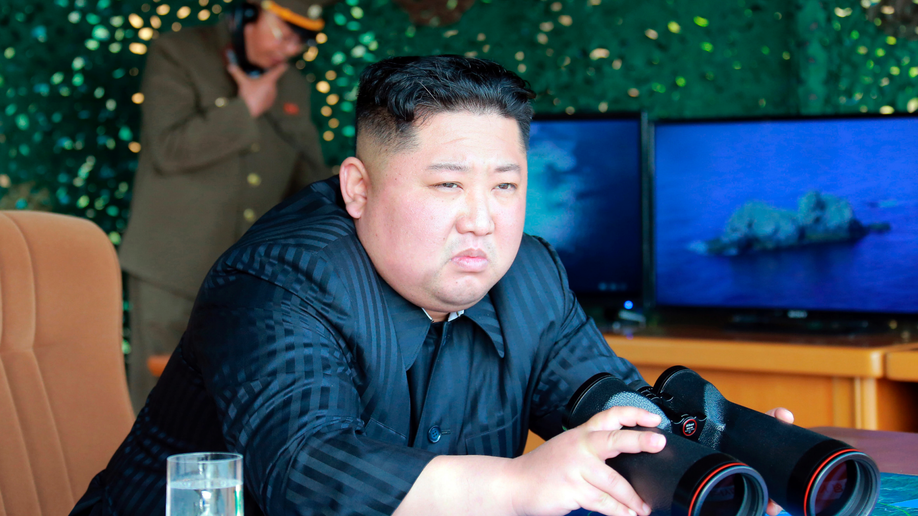JERUSALEM — An escalation in fighting between Israel and Hamas in Gaza over the weekend also brought with it a growing death toll Sunday, with reports that six Palestinians, including a pregnant mother and a baby, had been killed by Israeli air strikes on the Palestinian enclave and one Israeli man killed as more than 450 rockets and projectiles were fired into southern Israel from Gaza.
Lt. Col. Jonathan Conricus, an Israeli military spokesman, said based on the army’s intelligence it appeared that the pregnant mother and the baby were killed by Hamas’s own rockets and not Israel, though he offered no further proof. The country’s Iron Dome Defense system had saved countless lives in Israel, intercepting at least 150 of the rockets and projectiles that had been fired by Palestinian militant factions since Saturday morning, he said.
The flare-up, the most severe in months, looked set to threaten Egyptian and international attempts to forge a long-term truce arrangement between Israel and Hamas, the Palestinian militant group that rules Gaza.
In Israel, rocket sirens blared through the day Saturday and overnight sending thousands of Israeli civilians — as far as 30 miles from Gaza — into bomb shelters. Authorities said an Israeli man, 58, was killed in his home in the coastal city of Ashkelon. He is the first Israeli to be killed from Gaza rocket fire since Israel and Hamas fought a deadly 50-day war in the summer of 2014.
[After more than 2,100 deaths, the Gaza war ends where it began]
The Israeli military said in a statement that 70 percent of the rockets fired in the last 24-hours had landed in open areas, but some scored direct hits on homes and buildings. In Kiryat Gat, a town about 20 miles from Gaza, Israeli emergency services said an 80-year-old woman was seriously injured during a rocket barrage.
In Gaza, health authorities said four men in their twenties and the 37-year-old pregnant woman and child were killed in Israeli airstrikes. There were also reports from Gaza that five residential buildings were destroyed, including one housing Turkey’s Anadolu News Agency.
Israeli officials said airstrikes had hit more than 100 “terror targets” through Saturday and overnight, including offices belonging to Hamas and Palestinian Islamic Jihad, the second largest militant faction in Gaza. The army said it had also destroyed an attack tunnel crossing from Gaza into Israeli territory.
Conricus, the Israeli military spokesman, said homes belonging to militants were legitimate military targets and that, in total, some 220 “military targets” had been hit. He also said the army was in the process deploying an armored brigade to the area in preparation for “offensive missions.”
Saturday’s violence comes in the midst of negotiations over a longer-term truce between Hamas and Israel, during which the militant group has tried to assert pressure with rocket fire and incendiary balloons. Hamas is attempting to secure an easing of Israeli restrictions on trade and movement, in return for a lull in violence.
U.N. peace envoy Nickolay Mladenov called for calm from both sides.
“Continuing down the current path of escalation will quickly undo what has been achieved and destroy the chances for long-time solutions to the crisis,” he said in a statement. “This endless cycle of violence must end, and efforts must accelerate to realize a political solution to the crisis in Gaza.”
Israeli President Reuven Rivlin said Israel would “respond forcefully and swiftly to any attack on the security of our people.”
Israeli authorities said schools in the southern cities of Beersheba, Ashkelon and Ashdod would be closed Sunday. Prime Minister Benjamin Netanyahu was expected to hold an emergency meeting with his security cabinet on Sunday afternoon.
In a joint statement, Gaza’s militant factions said the rocket fire was in response to the “targeting and assassination” of their militants a day earlier. “Our response will be tougher and larger and broader in the face of aggression,” they said in a statement.
The Israeli military reported on Friday that two soldiers were lightly wounded in a shooting incident along its border with Gaza. In response, Israel struck sites belonging to the Izzedine al-Qassam Brigades, Hamas’s military wing, killing two fighters.
Also on Friday, two Palestinian protesters were killed taking part in ongoing weekly demonstrations at the border fence with Israel, the Palestinian Health Ministry said.
“It’s a reply to the Israeli targeting of peaceful civilians yesterday by Israeli snipers during the 58th Friday of Great March of Return,” said Basem Naim, a member of Hamas’s bureau for international relations, referring to the weekly protests staged in Gaza since last year. “Also, to the procrastination policies of the occupation toward lifting the siege on Gaza.”
[Thousands gather in Gaza to mark anniversary of bloody border protests ]
Gazans have been holding weekly demonstrations along the border, protesting the dire humanitarian situation in the strip that worsens daily and the ongoing land, sea and air blockade imposed by Israel since Hamas forcibly took power in 2007. Egypt opens its border with Gaza only sporadically.
Hamas spokesman Abdullatif al-Qanoua said the group would continue to “respond to the crimes of the occupation” and “not allow the blood of our people to be shed.”
Musab al-Buraim, spokesman for Islamic Jihad, said in a short statement that it too was committed to “resistance.”
Representatives of Hamas and Islamic Jihad visited Egypt this past week to discuss the understandings reached with Israel to reduce tensions. The Egyptians have spent months trying to forge a long-term truce between the sides to bring calm and ease conditions for 2 million Gazans.
But Saturday’s unrest, disrupting the lives of so many Israeli citizens, could impact attempts by Netanyahu to form a coalition after being reelected for a fifth term. His last government began to unravel after a similar flare-up with Gaza, when then-Defense Minister Avigdor Liberman resigned after calling for a tougher approach to the rocket fire.
[Netanyahu faces pressure for tougher Gaza response]
Standing down from his post in November, Liberman, head of the hawkish Yisrael Beiteinu party, said that agreeing to the cease-fire with Hamas was “surrendering to terror.” He proposed firmer military action against Hamas and other militant factions in Gaza, even if that risked a wider conflict.
In March, Netanyahu’s trip to Washington to meet with President Trump and speak at the annual AIPAC policy conference was cut short after a rocket fired from Gaza slammed into a house in central Israel.
Rocket fire and airstrikes similar to Saturday’s happen periodically.
In 2014, a 50-day deadly war between Israel and Hamas saw hundreds of rockets being fired into Israel, reaching as far as Tel Aviv, and massive Israeli aerial bombardments, killing more than 2,000 Palestinians. More than 70 Israelis and one foreign national were also killed.
There were concerns in Israel that unrest could disrupt preparations for the Eurovision Song Contest, an international singing event taking place in Tel Aviv this month. Contestants from across Europe are already in Israel to prepare for the event.
Balousha reported from Gaza. Morris reported from Tel Aviv.
Read more:
Today’s coverage from Post correspondents around the world
Like Washington Post World on Facebook and stay updated on foreign news
Let's block ads! (Why?)
https://www.washingtonpost.com/world/death-toll-rises-as-gaza-militants-fire-more-than-400-rockets-into-israel-and-israel-responds-with-airstrikes/2019/05/05/e1a981be-6eee-11e9-a66d-a82d3f3d96d5_story.html
2019-05-05 09:14:31Z
52780284410398




